Benefits of Outdoor Play for Autism
Discover the benefits of outdoor play for autism. Boost motor skills, sensory integration, and social connections.

Benefits of Outdoor Play for Autism
Benefits of Outdoor Play for Autism
Outdoor play provides a multitude of benefits for individuals with autism spectrum disorder (ASD). It offers unique opportunities for self-discovery, communication, self-confidence, friendships, and independence, contributing to their overall development [1]. Let's explore the importance of outdoor play for individuals with autism and how it can enhance their overall experience.

Importance of Outdoor Play
Enjoying time outdoors, regardless of the season, can be a valuable experience for individuals with autism. It offers a range of learning opportunities and sensory experiences that can positively impact their development. Outdoor play encourages exploration and self-discovery, allowing individuals with autism to engage with their surroundings and interact with nature.
Being in nature can provide a calming and soothing effect, reducing stress and anxiety levels. The natural environment offers a sensory-rich experience, stimulating the senses and promoting sensory integration. This can be particularly beneficial for individuals with sensory processing difficulties commonly associated with autism.
In addition, outdoor play promotes physical activity, which is essential for overall health and well-being. Engaging in physical activities outdoors helps develop motor skills, coordination, balance, and spatial awareness. Research shows that exercise and outdoor play have positive effects on children with autism, enhancing their physical development and overall cognitive functioning [2].
Enhancing the Outdoor Experience
To ensure that outdoor play is enjoyable and beneficial for individuals with autism, there are various ways to enhance the overall experience. One approach is to create a supportive and structured environment. This can be achieved by establishing routines and providing clear expectations and guidelines. Predictability and consistency can help individuals with autism feel more comfortable and confident in their outdoor play experiences.
Another way to enhance the outdoor experience is by participating in local family-friendly events, such as festivals and concerts. These events can provide opportunities for individuals with autism to engage with others and enjoy the community atmosphere. Having the support of extra adults around can also help make the experience more enjoyable and stress-free for everyone.
By embracing outdoor play, individuals with autism can reap the numerous benefits it offers. From promoting physical development and sensory integration to fostering self-confidence and social connections, spending time outdoors can be a transformative experience for individuals with autism.
Preparing for Outdoor Adventures
Before embarking on outdoor adventures with children with autism, proper preparation is key to ensure a positive and stress-free experience. This section focuses on two essential aspects of preparation: creating a picture schedule and choosing suitable activities.
Creating a Picture Schedule
Creating a visual schedule can greatly benefit children with autism, providing them with a clear understanding of the sequence of activities during the outdoor adventure. A picture schedule visually represents each step of the plan, helping the child anticipate what comes next and reducing anxiety. This step-by-step visual guide can be created using pictures, symbols, or words, depending on the child's preferences and communication abilities.
By involving the child in the creation of the picture schedule, you can encourage their participation and sense of ownership. Discussing the schedule ahead of time allows them to feel prepared, easing their transition into the outdoor environment. Visual schedules are particularly useful for children who thrive on routine and benefit from visual supports.
Choosing Suitable Activities
When planning outdoor adventures for children with autism, it's important to choose activities that align with their preferences and comfort levels. By considering their interests, sensory sensitivities, and individual needs, you can ensure that the activities are enjoyable and engaging for them.
Some children with autism may have specific interests or sensory preferences, such as water play, nature walks, or playground activities. Tailoring the outdoor experience to incorporate these interests can enhance their enjoyment and overall engagement. It's also important to consider their comfort levels with various stimuli, such as noise, crowds, or certain textures, and select activities that accommodate their sensitivities.
By choosing suitable activities, you create an environment where children with autism can thrive and fully participate. This can contribute to their overall well-being and promote positive outcomes in behavior and social-emotional development.
Remember, outdoor play for children with autism offers numerous benefits, including improved physical health, concentration levels, social connections, and communication skills. It also stimulates the development of fine and gross motor skills [3]. To explore these benefits further, continue reading our sections on Health Benefits of Outdoor Activities and Social and Emotional Development.
Ensuring Safety Outdoors
When engaging in outdoor play, ensuring the safety of children with autism is of utmost importance. It is essential to take precautions that consider their unique needs and characteristics. By providing a safe space and maintaining routines, we can create an environment where they can enjoy outdoor adventures with confidence and peace of mind.
Providing a Safe Space
Creating a safe space in the outdoors is crucial for children with autism. This space should be away from excessive activity and noise, providing them with a quiet and comforting spot to relax if they feel overwhelmed or overexcited during the adventure. This designated area can serve as a retreat where they can take breaks, regroup, and regain a sense of calmness.
When establishing a safe space, consider the following:
- Choose a secluded area away from crowds and loud noises.
- Provide sensory-friendly elements, such as comfortable seating or a cozy corner.
- Ensure the space is easily accessible and visible to caregivers or supervisors.
- Have calming activities or materials available, such as fidget toys or headphones.
By having a safe space readily available, children with autism can feel secure and supported, allowing them to fully enjoy their outdoor experience.
Maintaining Routines
Children with autism thrive on routine and predictability. Maintaining routines similar to those at home during outdoor adventures can help them feel more at ease and comfortable [4]. By incorporating familiar activities, breaks, and snacks, you can provide a sense of continuity and reduce anxiety.
Consider the following tips for maintaining routines outdoors:
- Plan the day's activities with familiar structures and schedules in mind.
- Provide visual schedules or picture supports to help children understand and anticipate what will happen next.
- Allow for breaks and downtime to prevent sensory overload or fatigue.
- Bring familiar items, such as favorite toys or comfort objects, to provide a sense of security.
By adhering to familiar routines, children with autism can navigate the outdoor environment with greater ease and confidence. This predictability helps them feel more in control and reduces stress or meltdowns that may arise due to unexpected changes.
Remember that safety should always be a top priority when children with autism participate in outdoor activities. Supervision should be provided at all times, and extra precautions should be taken to prevent wandering, drowning, and accidental injury [2]. Communicating water safety rules, ensuring they can be identified if lost, and keeping a first aid kit on hand are important strategies to ensure their safety during outdoor activities [5].
By providing a safe space and maintaining routines, we can facilitate a positive and enjoyable outdoor experience for children with autism, allowing them to reap the numerous benefits that outdoor play offers for their overall well-being.
Involving Children in Planning
To make outdoor adventures more enjoyable and engaging for children with autism, involving them in the planning process can be highly beneficial. This collaborative approach not only empowers children but also allows them to share their preferences and thoughts, creating a more positive and inclusive atmosphere during outdoor play [4].
Encouraging Preferences Sharing
When planning outdoor activities for children with autism, it's important to encourage them to share their preferences and interests. This can be done through open and supportive communication. By actively listening to their ideas, parents, caregivers, and educators can gain insight into the specific activities, environments, or themes that children find most appealing.
For example, if a child expresses a fondness for animals, incorporating a visit to a petting zoo or a nature trail where they can observe wildlife may be an exciting and engaging option. By tailoring the outdoor experience to their preferences, children are more likely to feel motivated and enthusiastic about participating in the activities.
Positive Collaboration Atmosphere
Creating a positive and collaborative atmosphere during the planning process is essential. Allowing children to participate in decision-making fosters a sense of control, autonomy, and excitement. This can be achieved by presenting them with choices and involving them in discussions about the activities, locations, or even the timing of the outdoor adventures.
Parents, caregivers, and educators can guide the planning process by offering suggestions and options while also valuing and respecting the input provided by the child. It's important to maintain a non-judgmental and supportive environment, where all ideas are considered and appreciated.
By involving children with autism in the planning stage, their interests and preferences are acknowledged, and they feel valued as active contributors to the outdoor experience. This collaborative approach enhances their sense of ownership, which can lead to a more enjoyable and enriching time outdoors.
In the next section, we will explore the health benefits of outdoor activities for children with autism, focusing on motor skills development and sensory integration improvement. Stay tuned!
Internal links:
- supporting autism during the holidays
- self-care for parents of children with autism
- using social media with children with autism
- preparing for a new school year with autism
- cognitive behavioral therapy in autism
- supporting autism during family gatherings
- addressing picky eating in autism
- supporting autism during potty training
- technology-assisted interventions in autism
- addressing hyperactivity in autism
- developing coping skills in autism
- benefits of peer support programs for autism
- supporting autism during a hospital stay
- virtual reality in autism therapy
Health Benefits of Outdoor Activities
Engaging in outdoor activities offers several health benefits for individuals with autism. These activities promote the development of motor skills and sensory integration, contributing to overall well-being.
Motor Skills Development
Physical activity plays a remarkable role in promoting motor skills and cognitive development in individuals with autism. Outdoor exercise helps improve balance, coordination, and spatial awareness, which are essential for everyday movements and activities [6]. By participating in outdoor play, individuals with autism have the opportunity to engage in activities that enhance their motor skills, such as running, jumping, climbing, and throwing.
Outdoor play also fosters confidence, achievement, and self-belief. As individuals with autism explore their surroundings and engage in various physical activities, they gain a sense of accomplishment and develop a positive self-image. These experiences can contribute to improved overall motor skills and a greater sense of physical competence.
Sensory Integration Improvement
Outdoor physical activities offer valuable opportunities for individuals with autism to improve sensory integration and emotional regulation. Interacting with nature and the outdoors can have a calming effect and enhance overall well-being. The sensory-rich environment of the outdoors provides individuals with autism with diverse stimuli that can help them process sensory information more effectively [6].
Outdoor play allows individuals with autism to engage with different textures, sounds, sights, and smells, which can help improve sensory processing skills. The exposure to natural elements like grass, sand, and water provides sensory experiences that can contribute to better sensory integration. These experiences may lead to an increased sense of calm, improved emotional regulation, and a greater sense of well-being.
Research suggests that exercise interventions, including outdoor play, can lead to improvements in communication, social skills, motor skills, cognitive abilities, and overall well-being for children with autism [2]. Despite the immense benefits of physical activity, it is important to note that rates of physical activity tend to be lower in children with autism compared to their neurotypical peers. Encouraging and facilitating outdoor play can help bridge this gap and provide individuals with autism with the opportunity to enjoy the numerous benefits of exercise.
By engaging in outdoor activities, individuals with autism can improve their motor skills and sensory integration, leading to enhanced physical and emotional well-being. Outdoor play provides a supportive environment for individuals with autism to develop and refine their motor skills while enjoying the benefits of being in nature.
Social and Emotional Development
Engaging in outdoor play provides valuable opportunities for children with autism to develop social connections and enhance their communication skills. The outdoor environment offers a space for interaction with peers and fosters a sense of belonging within a supportive community.
Building Social Connections
Outdoor play allows children with autism to socialize with their peers in an unstructured environment. This informal setting provides opportunities for spontaneous interactions, shared experiences, and collaboration. By engaging in play activities together, children can develop social connections and build relationships.
During outdoor play, children with autism have the chance to practice important social skills such as active listening, turn-taking, and cooperation. They learn to navigate social cues and understand the dynamics of social interactions. These experiences contribute to their social-emotional development and help them develop a sense of belonging and inclusion.
Enhancing Communication Skills
Outdoor play also plays a significant role in enhancing communication skills for children with autism. The less structured nature of outdoor environments encourages children to engage in natural and authentic communication. They have the opportunity to initiate and respond to conversations, use non-verbal communication, and express their needs and preferences.
Outdoor play can also stimulate imaginative play, which promotes language development and creativity. Children with autism can engage in pretend play scenarios, storytelling, and role-playing, offering them opportunities to practice verbal and non-verbal communication skills in a relaxed and enjoyable setting.
By engaging in outdoor play, children with autism can develop their social connections, enhance their communication skills, and build confidence in their interactions with others. The benefits of outdoor play extend beyond physical activity and contribute to their overall social-emotional development. To learn more about the benefits of outdoor play for children with autism, explore our article on outdoor play for autism.
References
Frequently Asked Questions
.jpg)
Autism And Bed Wetting: Unlocking Solutions
Explore the connection between autism and bedwetting and find practical insights and solutions for parents and caregivers. Discover how understanding and support can make a difference in managing this common challenge for children and individuals on the autism spectrum.

Proven Examples of Smart Goals for Students with Autism
Unlock the potential of students with autism through proven examples of SMART goals. Set them up for success!
.jpg)
What is the Sensory Processing Disorder ICD-10 Code?
If you or someone you know has been diagnosed with Sensory Processing Disorder (SPD), you may have heard of the ICD-10 code. In this article, we'll explain what the SPD ICD-10 code is, what it means, and why it's important.

Understanding Vestibular Stimming in Autism
Demystifying vestibular stimming in autism: Understand the impact, strategies, and support for individuals. Uncover the power of self-regulation through stimming.

Do Amish Kids Get Autism?
Explore the prevalence of autism in Amish children and uncover the factors that may contribute to this phenomenon. Delve into the unique characteristics of Amish communities and their impact on autism rates.

Breaking Barriers: Free Sensory Toys for Autism That Make a Difference
Discover life-changing free sensory toys for autism! Unlock the power of sensory play for children with autism.

Famous People Thriving with Autism or Aspergers Syndrome
Discover the extraordinary journeys of famous people thriving with autism and Asperger's syndrome. Unveil the inspiring stories of icons who break stereotypes.

IEP Goals for Autism: Ultimate Guide
Unlock the potential: Constructing meaningful IEP goals for autism to support your child's growth and development. Discover strategies and examples!

Young Celebrities with Autism
Discover inspiring young celebrities with autism and their journeys in entertainment and advocacy.
.jpg)
Autism Hand Posturing: Causes, Types, and Management
Autism hand posturing refers to repetitive and often purposeless movements or postures of the hands and fingers seen in individuals with autism. These movements range from simple hand flapping to more complex finger twisting and tapping.

Distinguishing ADHD vs Autism Stimming
ADHD stimming vs autism stimming: Discover the motivations and characteristics behind these behaviors in individuals.

Addressing Rigid Thinking in Autism
Unlocking flexibility in autism! Discover strategies, therapy, and tools to address rigid thinking for a brighter future.

DSM 6 Release Date Revealed
Unlock the future with DSM-6! Discover the release date and anticipated changes in the mental health landscape.

Why Do Autistic People Rock?
Uncover insights with empathy, exploring the diverse ways rocking serves as a coping mechanism and sensory regulation for individuals on the autism spectrum. Join us in celebrating the beauty of neurodiversity, fostering understanding and appreciation for this distinctive aspect of autistic experience.

Signs Your Toddler Is Not Autistic
Discover reassuring signs that your toddler may not be autistic in this human-centered guide. Explore the joy of your child's unique developmental journey, celebrating their social engagement and communication skills.
.jpg)
Facial Features & Physical Characteristics Of Autism
Some researchers believe that these physical characteristics are related to the underlying neurological differences in individuals with autism.
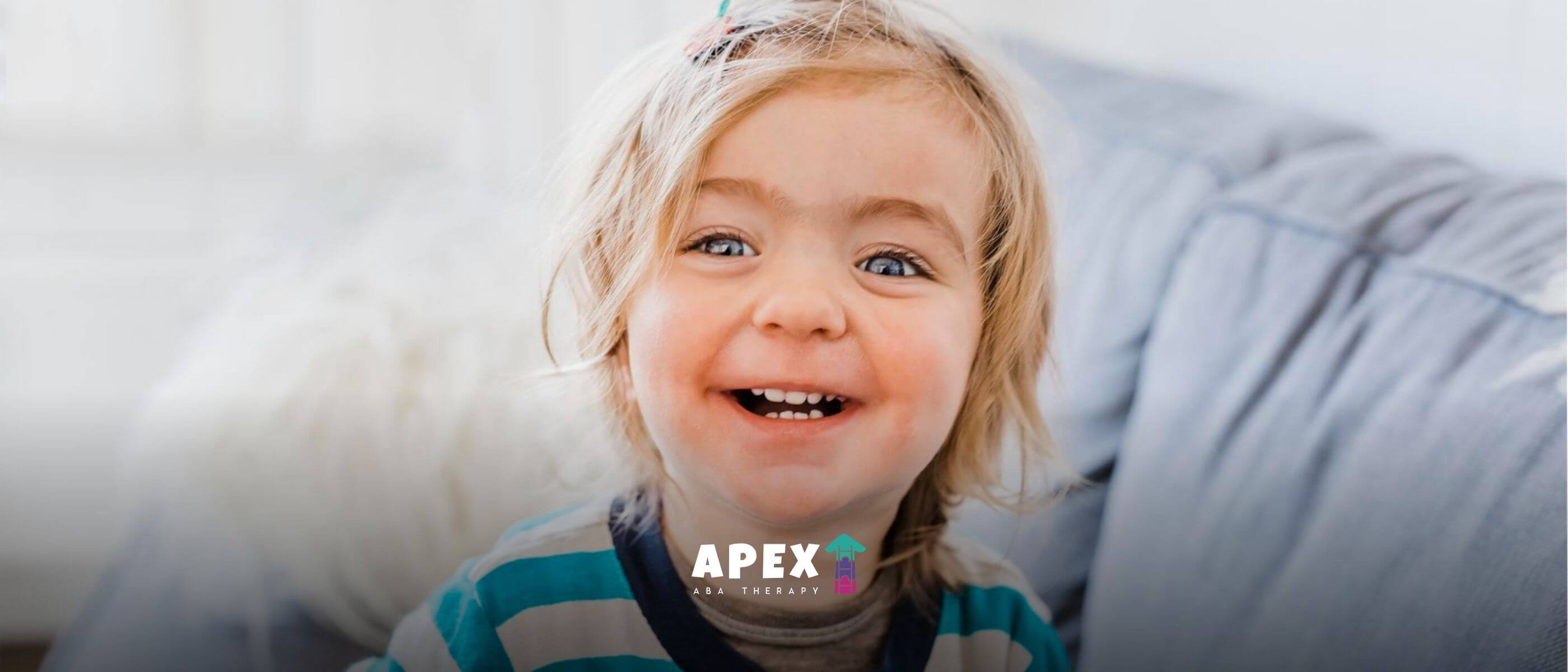
The Three Main Causes of Autism: Exploring Genetics, Environment, and Brain Differences
Autism is influenced by genetics, environmental factors, and brain differences. Learn how these three causes contribute to the development of the condition.

What are the Common Behaviors of Autism?
Autism behaviors can vary widely. Learn about the most common traits, from social difficulties to sensory sensitivities, and how ABA therapy can support progress.
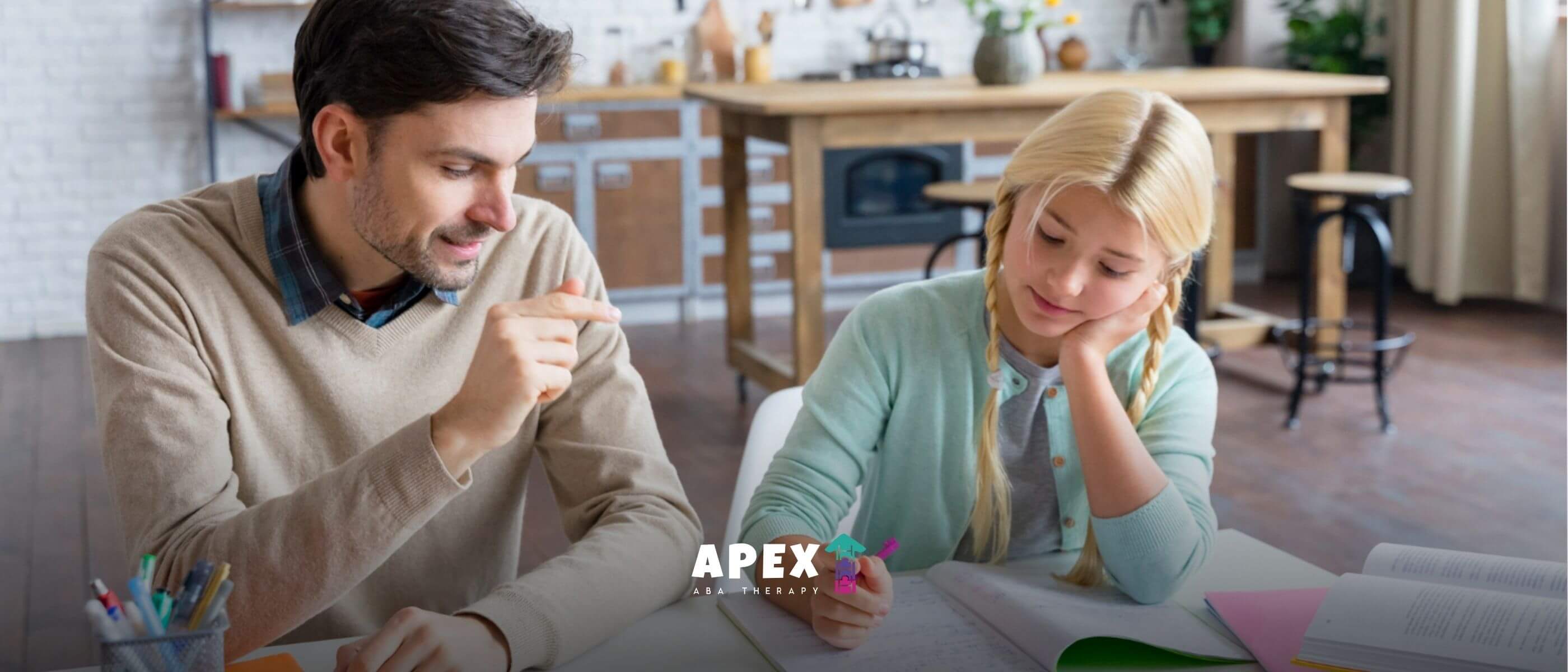
What Age is Too Late for ABA Therapy?
It’s never too late to start ABA therapy. Discover how children, teens, and adults can still make meaningful progress with personalized ABA support.

Is In-Home ABA the Right Fit for Your Child? Here’s What You Need to Know
In-home ABA therapy offers a tailored approach to support your child’s development. Learn how it can improve key skills like communication, social interaction, and more.

How Families Can Make ABA Therapy a Positive and Successful Experience
Learn how families can ensure ABA therapy is a positive, successful experience. Discover tips for involvement, consistency, and support to make ABA effective.
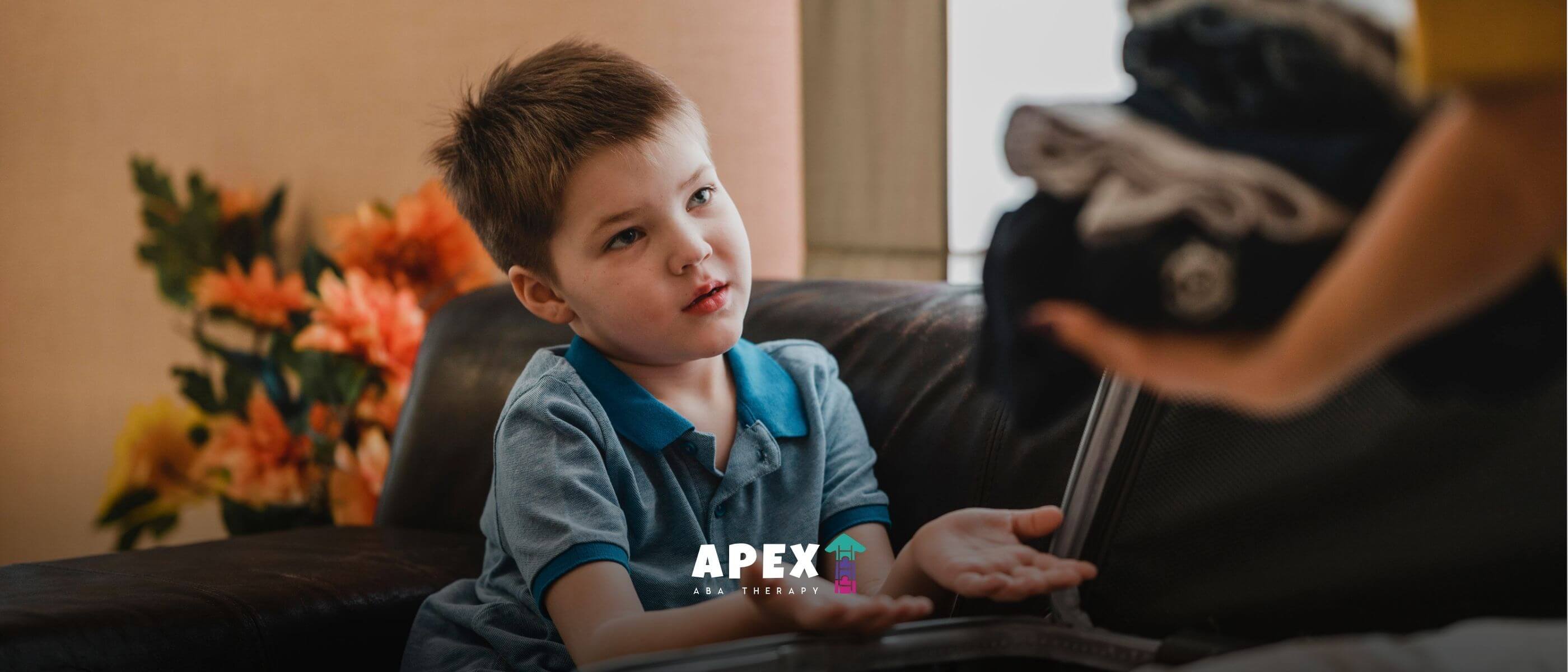
Can a Child Have Autism and Still Talk Normally?
Can a Child Have Autism and Still Talk Normally?

What Are the Red Flags for Autism in a 2-Year-Old?
Autism Red Flags in 2-Year-Old Children | Apex ABA

Is Autism a Lifelong Condition?
Is Autism a Lifelong Condition? Understanding The Journey

Best Age to Start ABA Therapy & What Parents Should Know
Best Age to Begin ABA Therapy for Children | Apex ABA

What’s the Difference Between High-Functioning Autism and Asperger’s?
Difference Between High-Functioning Autism and Asperger’s
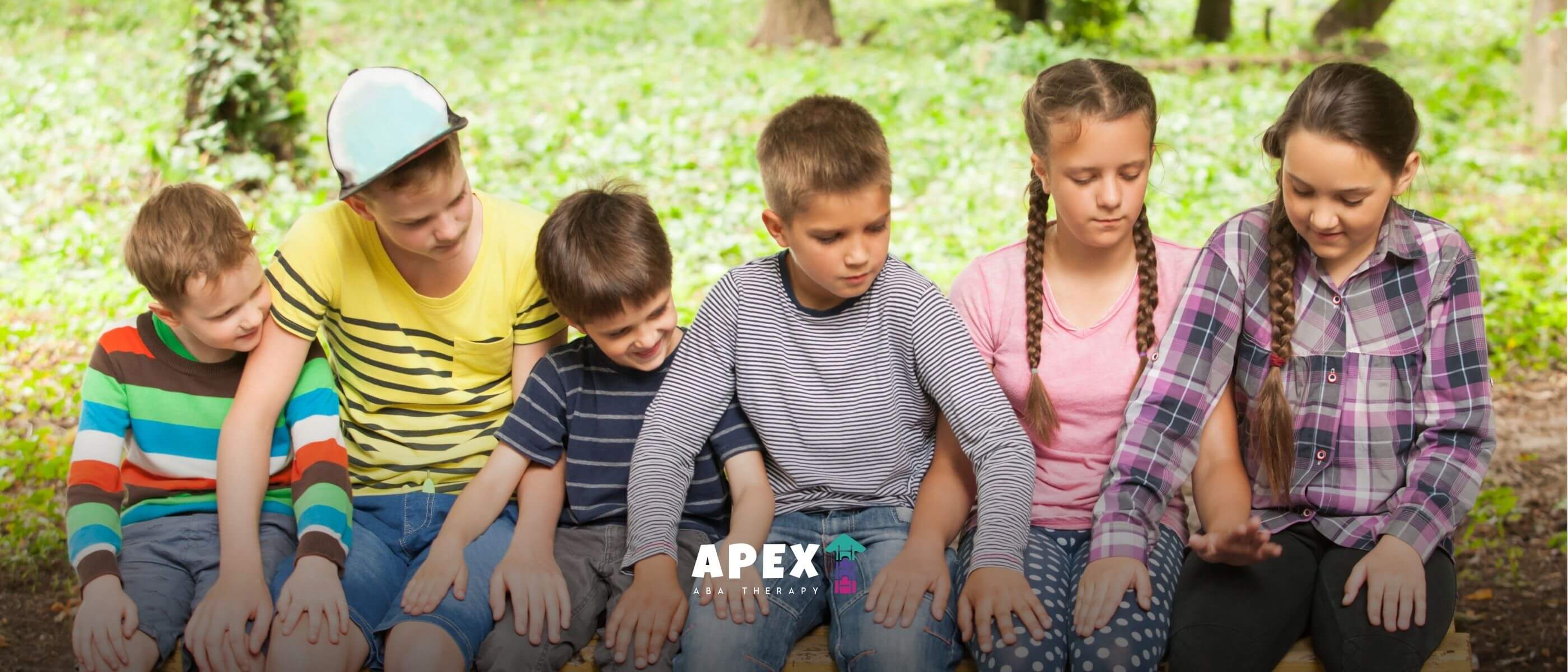
ABA Therapy Enhancing Social Skills: A Key to Improved Communication and Interaction for Children with Autism
How ABA Therapy Helps Children Build Social Skills
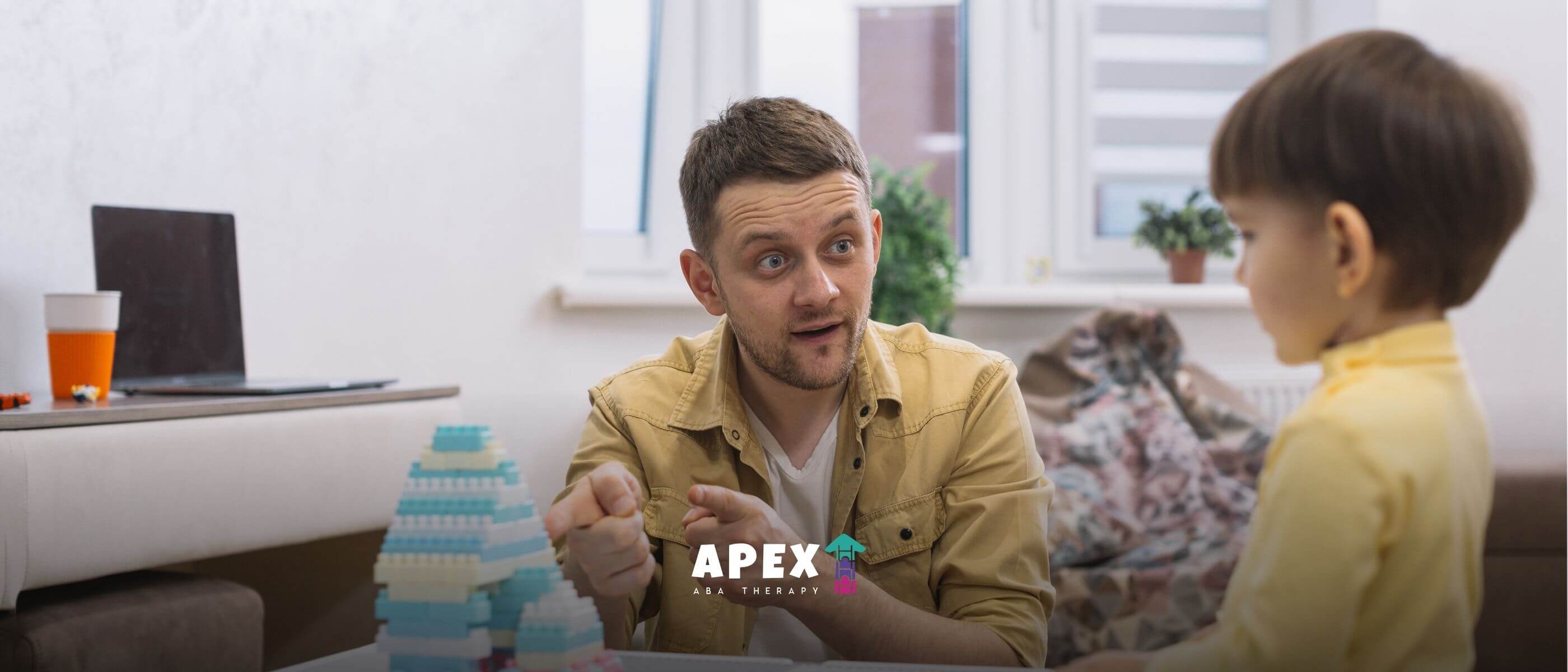
Misconceptions About ABA Therapy: Clearing Up the Myths
Common Misconceptions About ABA Therapy | Apex ABA

What Does It Mean to Be “On the Spectrum”?
What Does It Mean to Be on the Autism Spectrum? | Apex ABA

Understanding the Power of Functional Behavior Assessment ABA
Effective ABA Techniques for Behavioral Intervention

Discover How ABA Helps ADHD in Your Child’s Life
How ABA Therapy Helps Children with ADHD | Apex ABA

Life-Changing ABA Therapy Case Studies You Need to Know
Real Success Stories from ABA Therapy Journeys | Apex ABA

Can Children “Outgrow” Autism?
Can Children Outgrow Autism? Understanding the Facts

Is Autism a Mental Illness or a Developmental Disorder?
Mental Illness or Developmental Disorder Explained
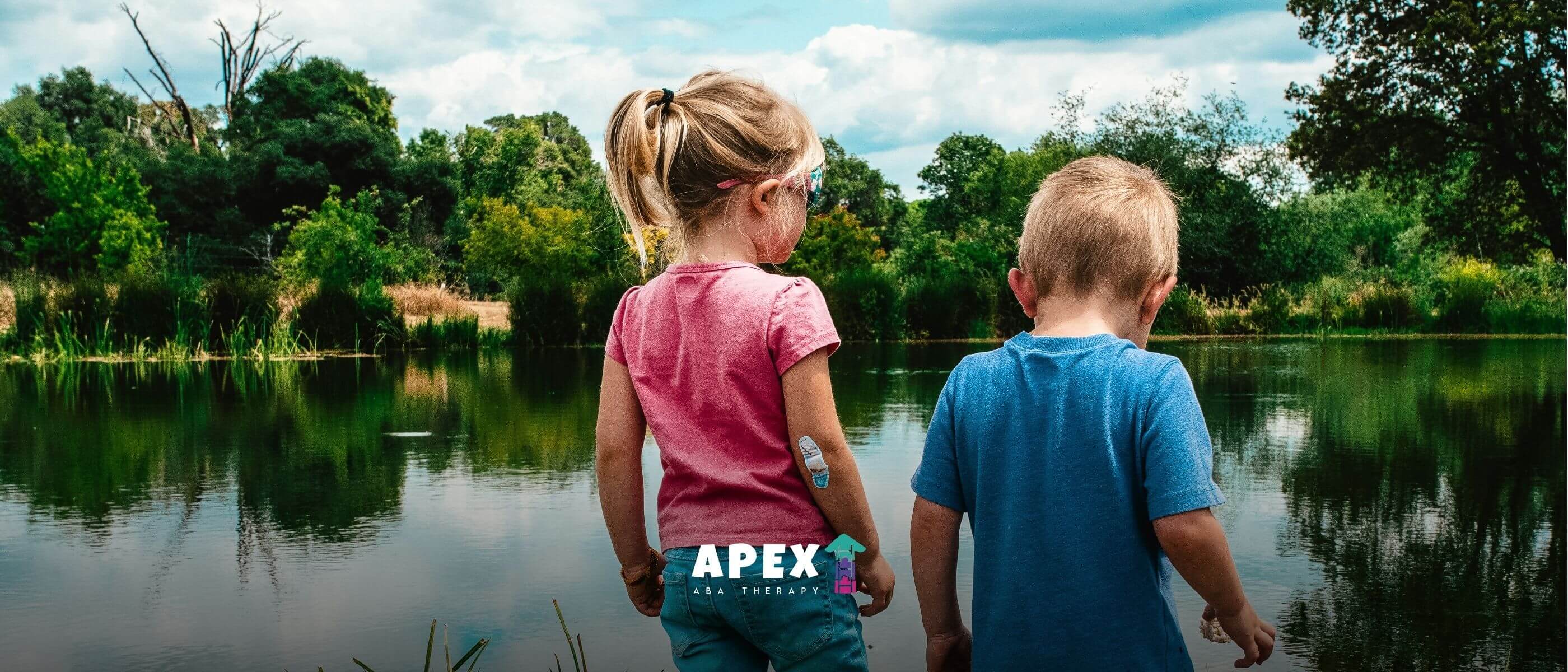
Is Autism More Common in Boys Than Girls?
Autism in Boys vs Girls: What the Research Reveals

What is the Difference Between Autism and Sensory Processing Disorder?
Autism vs Sensory Processing Disorder Differences | Apex ABA

What's the Difference Between Autism and Speech Delay?
Autism vs Speech Delay & Key Differences Explained | Apex
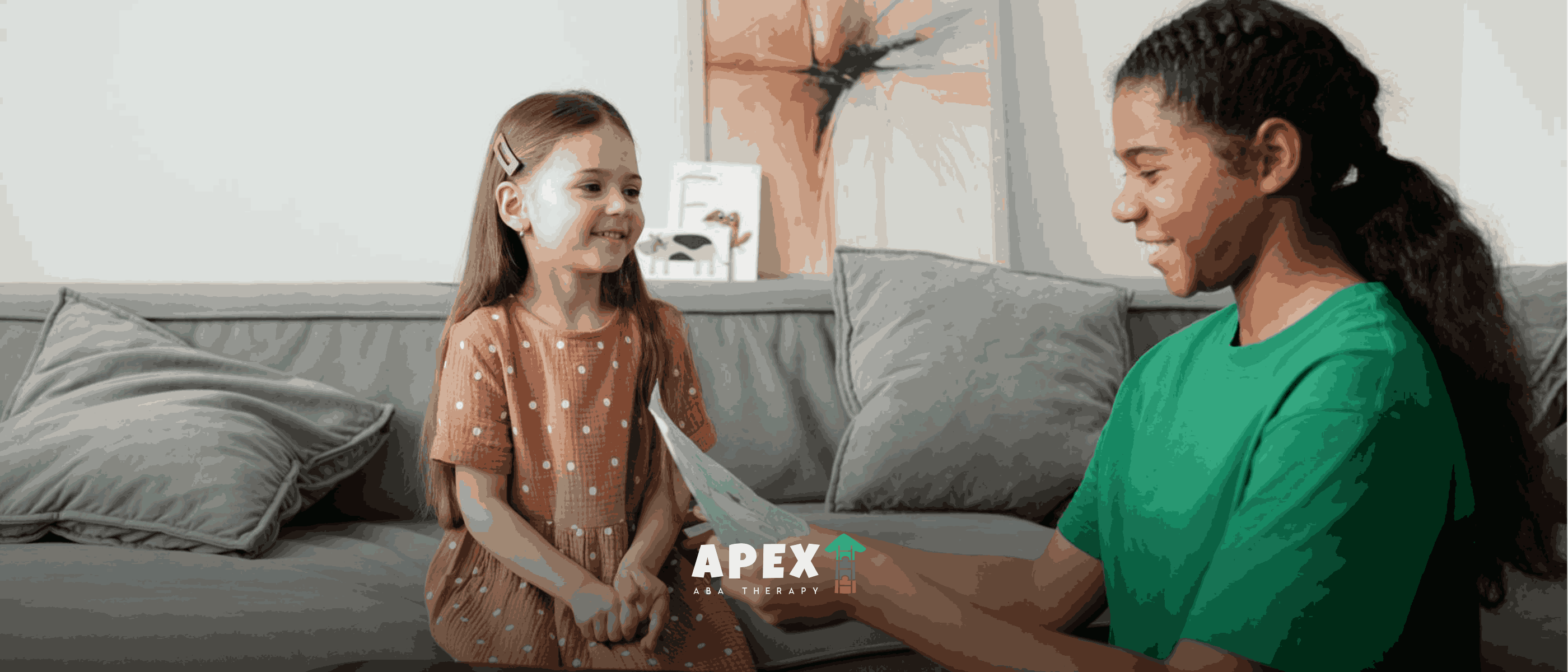
ABA Therapy in North Carolina: A Complete Guide for Families
Learn everything about ABA therapy in North Carolina, including services, costs, insurance coverage, and how to choose the best ABA provider in North Carolina.
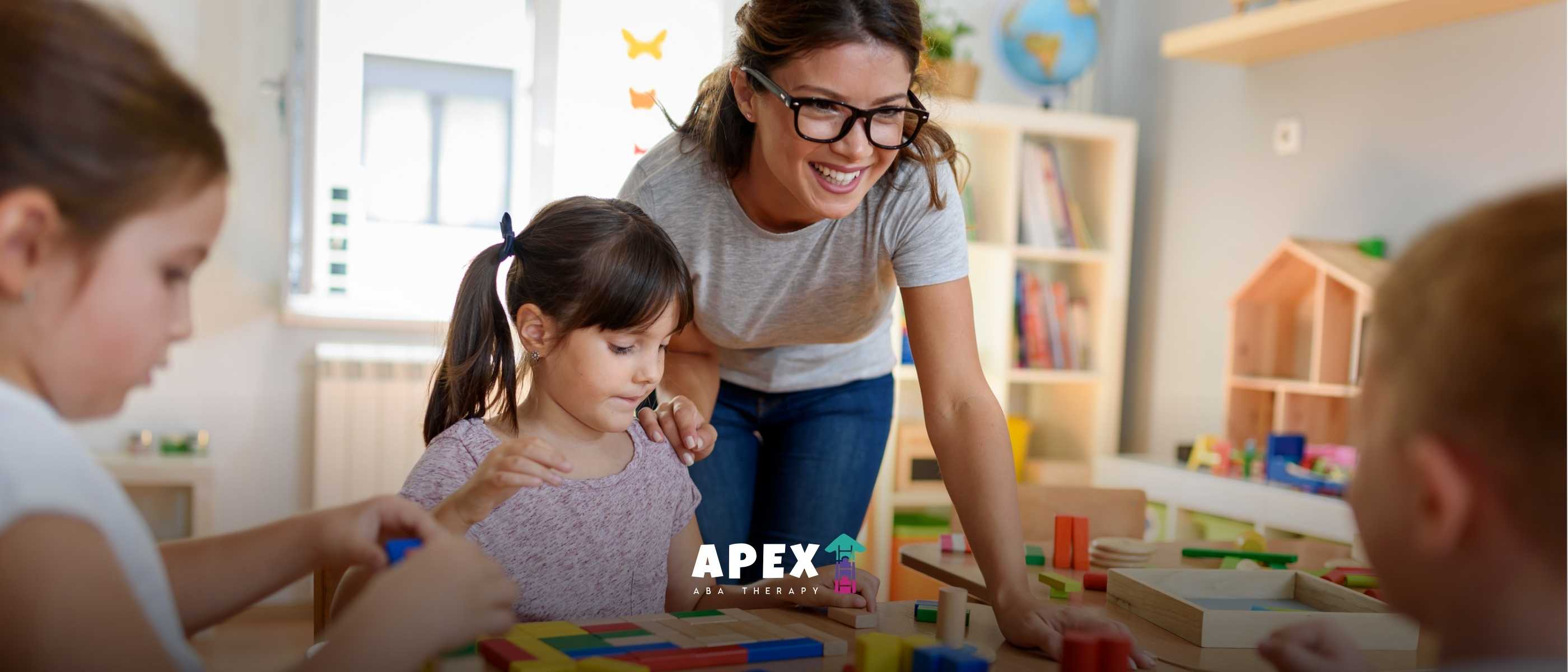
ABA Therapy vs Preschool: Making the Right Choice Explained
Learn the key differences between ABA therapy and preschool to help you choose the best option for supporting your child’s early learning and development.

Which Personality Type Is Most Likely to Be Autistic?
Which Personality Type Is Most Likely to Be Autistic? | Apex ABA

Why Consistency Matters: What Happens If ABA Therapy Ends Prematurely
What Happens If ABA Therapy Is Stopped Too Early? | Apex ABA

How Can You Gain an Autistic Person’s Attention? Tips for Meaningful Connection
How Can You Gain an Autistic Person’s Attention?

Sensory Sensitivity and Sixth Sense: What Autism Research Shows
Do Autistic People Have Sixth Sense? | Apex ABA
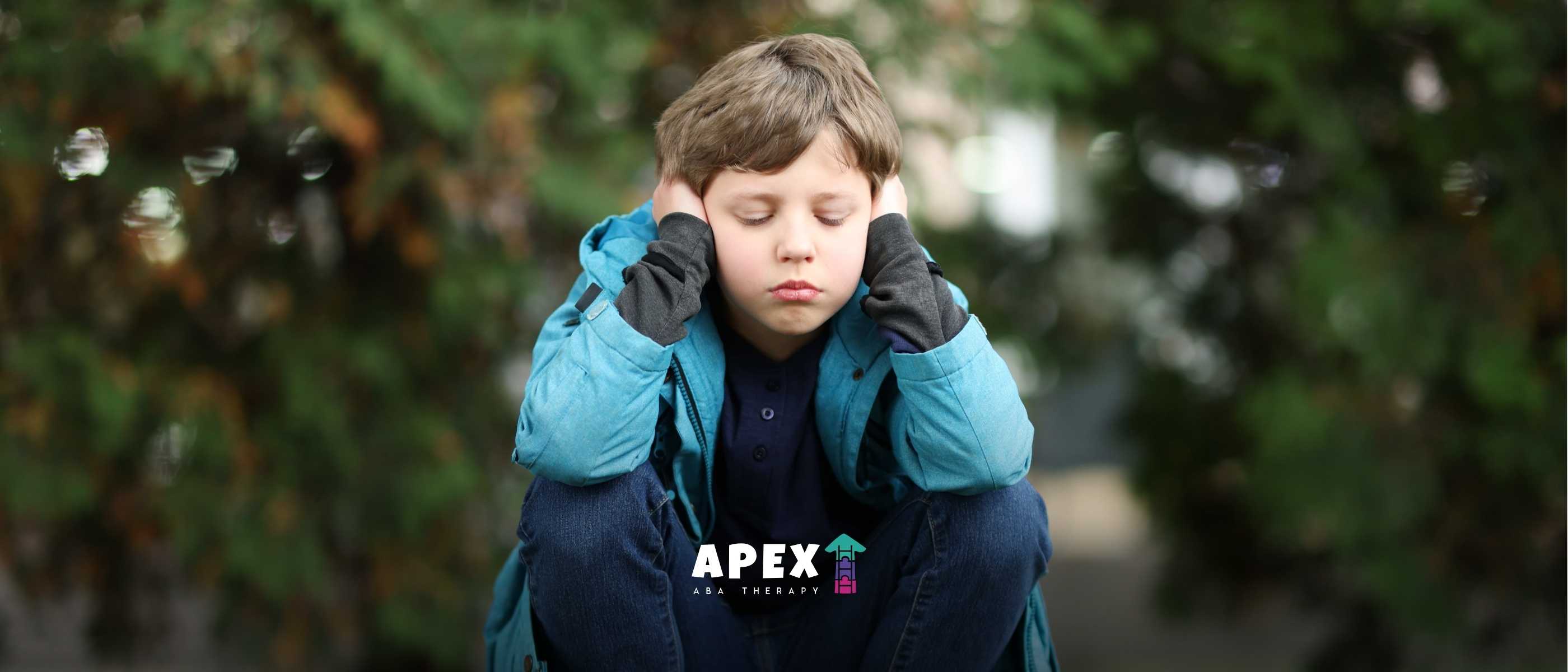
What Happens If Autism Is Left Untreated?
Can Autism Get Worse If Untreated? | Apex ABA

What Not To Do With An Autistic Child: Avoid These 10 Mistakes
What Not To Do With An Autistic Child? | Apex ABA

Coping with Regressive Autism: Tips for Parents
What is Regressive Autism? | Apex ABA

Do Autistic Kids Live with Parents Forever? Here’s the Reality
Do autistic kids live with parents forever? Discover the facts about independence and living arrangements in autism with expert-backed insights.

Red Flags in ABA Therapy: What Parents Must Watch For
What are the red flags in ABA therapy? Learn to identify warning signs for safe, effective autism treatment in this blog.

Can You Go from Level 3 Autism to Level 1? Is It Possible?
Can you go from level 3 autism to level 1? Learn about progress, therapy, and support options with expert help from Apex ABA.

Autism vs Introversion: How to Tell the Difference
Is it autism or just introversion? Learn the key differences and signs with expert insights from Apex ABA.
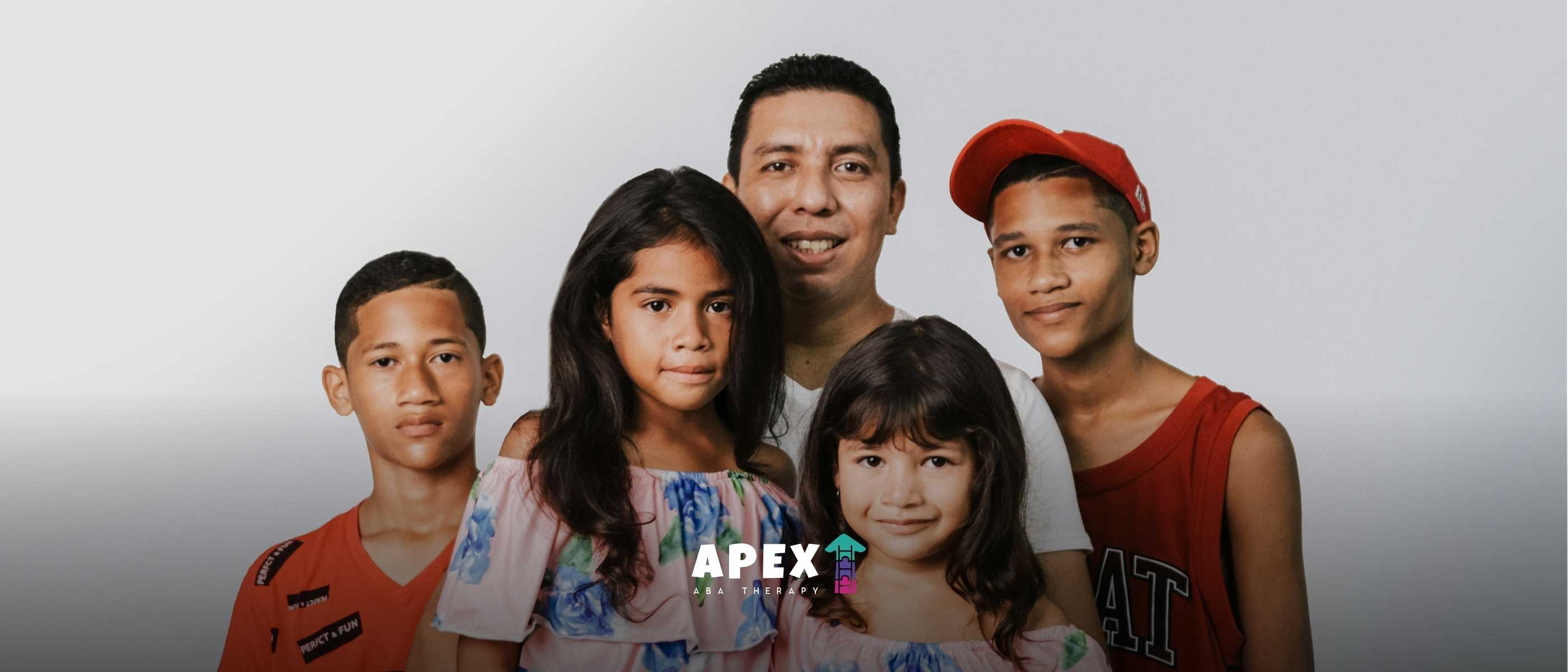
ABA for Managing Transitions: Tips to Ease Change for Kids
Learn how ABA for managing transitions helps children with autism handle change smoothly.

Understanding the 7 Dimensions of ABA for Better Outcomes
Discover the 7 Dimensions of ABA and how they can lead to better outcomes.

5 Unique Autistic Love Languages You Should Know About
Discover the 5 unique autistic love languages that can enhance your relationships.

Transforming Futures: Improving Lives of Kids with Autism
Discover how innovative strategies are focused on improving lives of kids with autism.

ABA Therapy Techniques for Addressing Repetitive Behaviors in Autism
Harnessing ABA Strategies to Tackle Repetitive Behaviors in Autism

The Role of ABA Therapy in Enhancing Communication Skills
Transforming Communication for Children with Autism Through ABA Therapy

How ABA Therapy Supports Effective Communication in Nonverbal Children
Unlocking Speech Through ABA: Transformative Paths for Nonverbal Children

How to Help Your Child Transfer Skills Learned in ABA Therapy to Real Life
Unlocking Real-World Success for Children in ABA Therapy

How ABA Therapy Helps Children Develop Better Organizational Skills
Empowering Children with ABA Therapy for Enhanced Organizational Skills

The Importance of Creating a Structured Routine in ABA Therapy
How Structured Routines Transform ABA Therapy for Autism

The Role of ABA Therapy in Developing Conflict Resolution Skills
How ABA Therapy Transforms Conflict Resolution Competence

The Importance of Generalization in ABA Therapy for Autism
Unraveling the Role of Generalization in Enhancing ABA Therapy Outcomes

Why ABA Therapy is Crucial for Parents of Children with Autism
The Transformative Impact of ABA Therapy on Families with Autistic Children

How to Involve Parents in the ABA Therapy Process
Maximize Parent Engagement in ABA Therapy for Better Outcomes

What are the Core Principles of ABA Therapy?
Exploring the Cornerstones of Applied Behavior Analysis

Why Communication is Key in ABA Therapy for Autism
The Crucial Role of Communication in ABA Therapy for Autism

Why ABA Therapy Works for Children with Autism Regardless of Severity
Effective ABA Interventions for All Levels of Autism

Why It’s Important to Maintain a Balanced Approach to ABA Therapy
Balancing Effectiveness and Ethics in ABA Therapy

The Role of ABA Therapy in Developing Adaptive Behavior Skills
Exploring How ABA Therapy Transforms Lives

The Benefits of Combining ABA Therapy with Speech Therapy
Maximizing Development with Integrated Therapy Approaches

What to Expect During an ABA Therapy Session
Demystifying ABA Therapy Sessions: A Comprehensive Overview

How ABA Therapy Enhances Cognitive Functioning in Children with Autism
Exploring the Influence of Applied Behavior Analysis on Autism Cognition

How ABA Therapy Helps Children with Autism with Transitions Between Activities
Easing Transitions for Children with Autism: The Role of ABA Therapy

How to Foster Cooperation Between Parents and Therapists in ABA Therapy
Building Effective Partnerships in ABA Therapy

The Role of Positive Reinforcement in ABA Therapy
Exploring the Impact of Positive Reinforcement in Modern ABA Therapy

Why ABA Therapy is Effective for Children of All Ages
Understanding the Reach and Impact of ABA Therapy Across Age Groups

How to Support Your Child’s Emotional Growth with ABA Therapy
Harnessing ABA Therapy for Enhancing Emotional Development in Children with Autism

The Role of ABA Therapy in Enhancing Peer Relationships for Children with Autism
Harnessing ABA Therapy to Boost Social Connections Among Autistic Children

How to Overcome Common Challenges in ABA Therapy
Navigating Hurdles in ABA Therapy: Strategies and Solutions

How to Manage Behavioral Expectations with ABA Therapy
Understanding Applied Behavior Analysis in Behavioral Management

How ABA Therapy Promotes Emotional Regulation in Children with Autism
Unlocking Emotional Balance: ABA Therapy's Role in Autism

How ABA Therapy Improves Social Skills in Children with Autism
Harnessing ABA Therapy to Enhance Social Competency in Autistic Children

The Role of ABA Therapy in Classroom Success for Children with Autism
Harnessing ABA for Academic and Social Growth in Autism

The Importance of Evaluating and Revising ABA Therapy Goals Regularly
Regular Evaluations: The Cornerstone of ABA Therapy Success

How to Choose the Right ABA Therapy Program for Your Child
Finding the Perfect ABA Therapy Fit for Your Child

The Role of Behavior Analysts in Implementing ABA Therapy
Understanding the Vital Contributions of Behavior Analysts in ABA Therapy

The Role of RBTs (Registered Behavior Technicians) in ABA Therapy
A Closer Look at the Essential Work of RBTs in ABA Therapy

What Makes ABA Therapy Effective for Different Learning Styles?
Unraveling the Flexibility and Effectiveness of ABA Therapy

Understanding the Importance of Data Collection in ABA Therapy
The Role of Data in Shaping Effective ABA Therapy

How ABA Therapy Helps with Toilet Training in Children with Autism
Unlocking Independence: ABA's Role in Autism Toilet Training

The Importance of Encouraging Natural Play in ABA Therapy
Revolutionizing ABA Therapy with Natural Play

How to Make the Most of ABA Therapy at Home
Enhancing ABA Therapy Practices Within Your Home

How to Make ABA Therapy Fun and Engaging for Children with Autism
Transforming ABA Therapy into a Fun Learning Journey

The Role of ABA Therapy in Addressing Verbal and Nonverbal Communication in Autism
Enhancing Communication Skills in Autism Through ABA Therapy

Understanding the Role of Family in ABA Therapy for Autism
The Crucial Impact of Family Engagement in Autism Therapy

How to Handle Setbacks and Challenges in ABA Therapy
Navigating Difficulties and Setbacks in ABA Therapy for Children

How ABA Therapy Can Help Children Build Stronger Relationships with Peers
Unpacking the Influence of ABA Therapy on Peer Relationships in Children

Understanding the Concept of Shaping in ABA Therapy
Demystifying Shaping Techniques in Applied Behavior Analysis

How ABA Therapy Enhances Independent Living Skills in Autism
Unlocking Independence: The Role of ABA Therapy in Autism
.jpg)
90+ Reading Statistics, Facts and Demographics
In this article, we will dive into 60 reading statistics that shed light on the importance of reading and its impact on different aspects of life.



